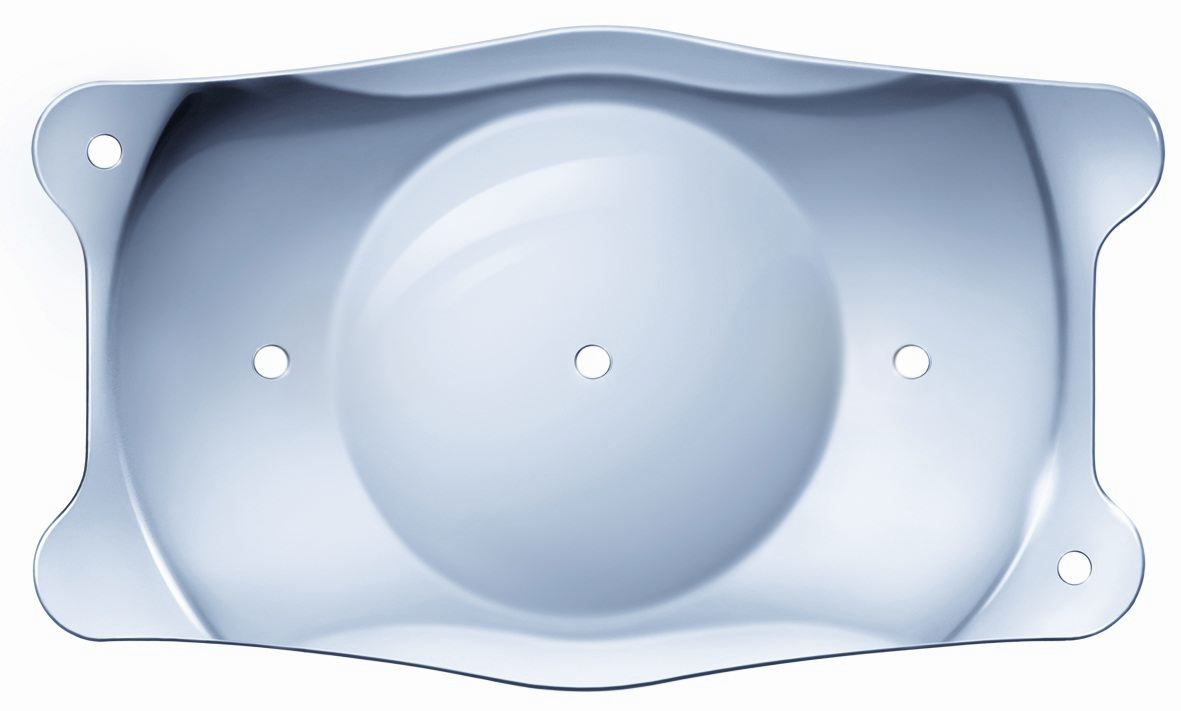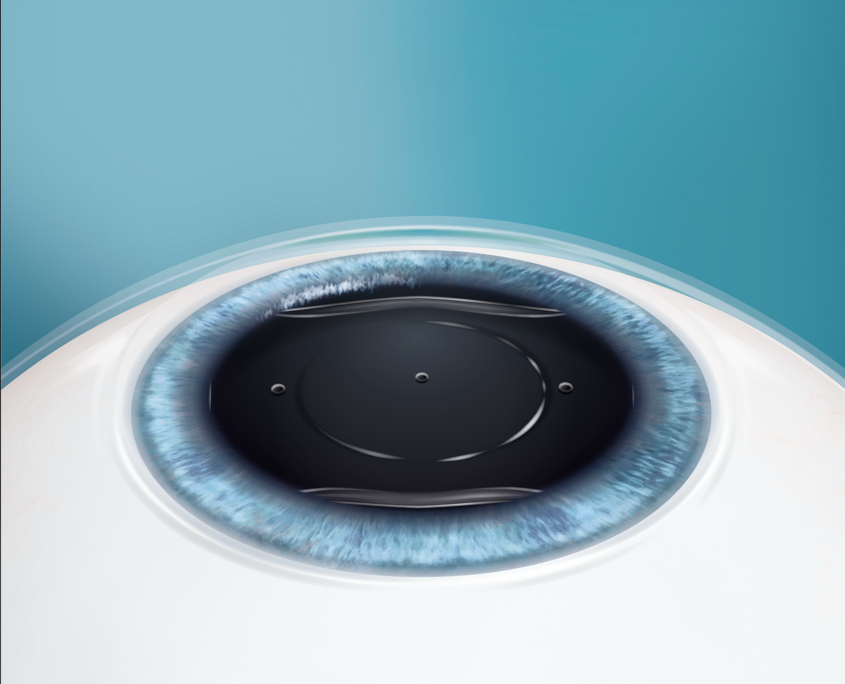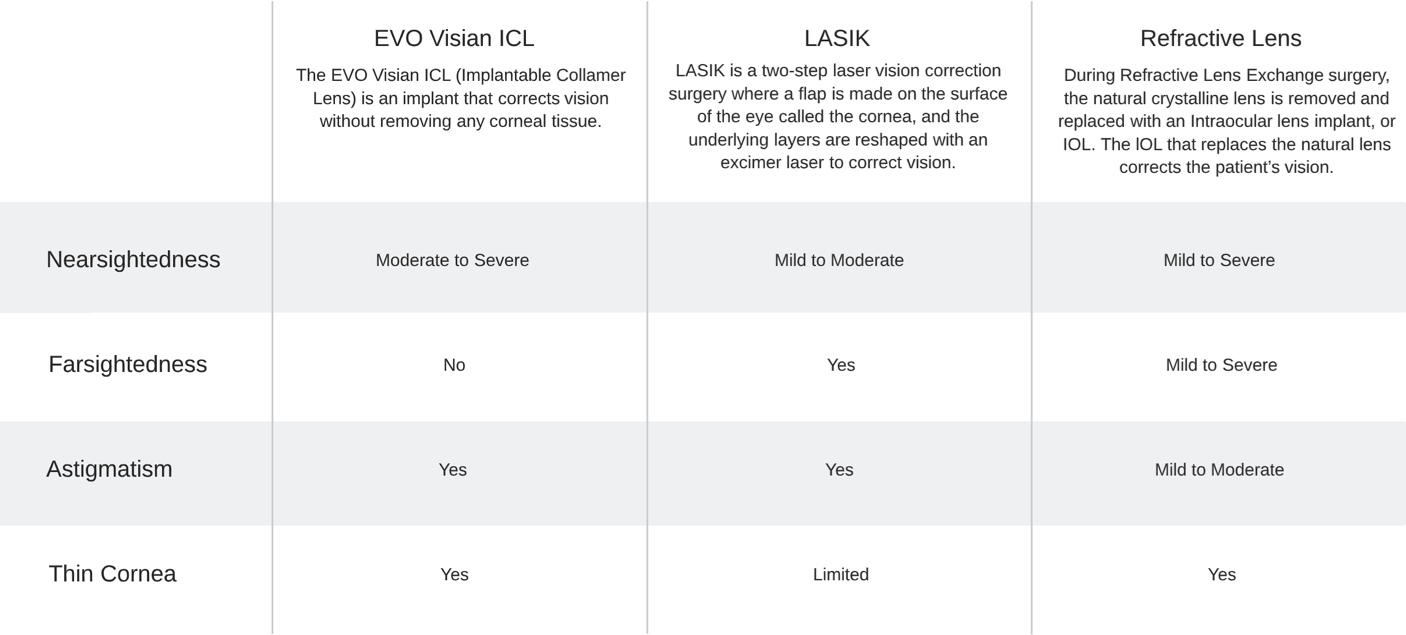Experience the Freedom and Flexibility
Life is all about the details, and we want you to enjoy every single one. EVO ICL is made for people who want to experience life without the hassle of glasses or contact lenses. Barnet Dulaney Perkins Eye Center is the first practice in the Southwest to offer STAAR Surgical’s EVO ICL Lenses.
What are EVO ICL Lenses?
EVO ICL, also called an Implantable Collamer® Lens, is a refractive implant to correct common vision issues like myopia (nearsightedness) with or without astigmatism. Unlike some other vision correction options, the EVO ICL is an additive technology that corrects vision without the removal of any corneal tissue. The EVO ICL is meant to reduce or eliminate the need for glasses and contacts and unlike most permanent refractive solutions, EVO ICL is removable by your doctor, for added peace of mind.
Who is eligible?
EVO ICL is well-suited for a wide variety of people. Ideal candidates for EVO ICL are aged 21 to 45 with nearsightedness with or without astigmatism and have maintained a stable prescription for at least one year. If you are seeking a solution to decrease or eliminate the cost and frustration of traditional contacts or glasses, EVO ICL may be your answer. Schedule a consultation to discuss if EVO ICL is right for you.
Benefits of EVO ICL
- Provides clear, sharp vision
- 20 to 30 minute procedure
- Quick recovery time
- Removable by your doctor
- Offers UV protection
- Not visible once in place
- Can treat nearsightedness with or without astigmatism
- For patients who may not be candidates for LASIK or other vision correction procedures due to thin corneas
- Does not cause dry eye syndrome, which can be a potential side effect of other vision correction procedures
- Excellent night vision
The EVO ICL procedure
EVO ICL is made of biocompatible Collamer material that works in harmony with your eye. Your eye doctor will create a small opening in your cornea that will be used to insert and position the EVO ICL. For most patients, the procedure is virtually painless with numbing drops and it typically takes less than 20 – 30 minutes. Patients typically experience improved vision right away and a quick recovery time.
Easy 20-30 minute surgical procedure
Life with EVO ICL
“I had my first opportunity to put my ICL eyes to the test recently in the Brazilian Rainforest, and it couldn’t have been more exciting to be able to spot rare species better than ever.”
“I would never be able to just wake up and go, and now I can literally just roll out of bed and go straight to the farmers market.”
EVO ICL compared to other vision correction procedures
The complete guide to EVO ICL
This free guide is meant to help people who need vision correction make decisions. You will learn about:
- How EVO works
- Benefits of EVO ICL
- The procedure
Additional resources about EVO ICL
Frequently Asked Questions
What is EVO?
EVO is an evolution in vision correction? a clinically-proven implantable lens that corrects common vision problems such as nearsightedness and nearsightedness with astigmatism, which is the need fordistance vision correction. EVO can be the solution for people who want to get rid of their glasses or contact lenses.
What is the EVO lens made from?
The EVO ICL lens is made from Collamer, a collagen co-polymer that is proprietary to STAAR Surgical. Collamer is biocompatible, stable, and flexible, thus making it an ideal lens material for the eye. It has a long history of successful in-eye use.
How safe is the EVO ICL?
EVO is a globally trusted and tested procedure. According to a STAAR patient survey, 99.4% of patients would have the EVO procedure again.6 Over 1,000,000 EVO ICL lenses have been implanted around the world. And now the EVO ICL has been confirmed by the U.S. FDA to be a safe and effective treatment of moderate to high nearsightedness with or without astigmatism for U.S. patients.
What clinical studies can you reference to prove the EVO ICL’s safety and efficacy?
The most recent U.S. clinical trial of the EVO ICL reviewed by FDA is summarized in the EVO/EVO+ ICL Directions for Use (DFU) and the FDA?s Summary of Safety and Effectiveness Data (SSED) issued with the PMA Approval notice. Hundreds of peer-reviewed papers from dozens of countries report the safety and efficacy of EVO. Select papers are listed below including a comprehensive literature review of peer-reviewed papers bringing together the safety and effectiveness data from 67 preclinical studies and clinical reports. In these studies, 4,196 eyes reported safety data and 1,905 eyes reported effectiveness data.
- Packer M. The Implantable Collamer Lens with a central port: review of the literature. Clinical Ophthalmology 2018:12: 2427-2438.
- Martinez-Plazs E, Lopez-Miguel A, Lopez-De La Rosa A, et al. Effect of the EVO+ Visian Phakic Implantable Collamer Lens on Visual Performance and Quality of Vision and Life, Am J Ophthalmol 2021;226: 117-125.
- Ganesh S, Brar S, Pawar A. Matched population comparison of visual outcomes and patient satisfaction between 3 modalities for the correction of low to moderate myopic astigmatism. Clin Ophthalmol. 2017;11:1253-1263
How is EVO different from LASIK? Is it better than LASIK?
Both EVO and LASIK are effective vision correction options. EVO offers a great way to break free from glasses and contact lenses while not having to remove corneal tissue as in laser vision correction procedures. The EVO lens is additive; meaning, it is implanted in the eye and doesn’t remove corneal tissue. The EVO lens works in harmony with the natural eye while delivering sharp, clear vision, excellent night vision, UV protection, and does not cause dry eye syndrome. If desired, the EVO lens is removable by a doctor providing patients added peace of mind.
If someone has already had LASIK, can they have the EVO ICL implanted?
Most likely not as the safety and effectiveness of EVO for the correction of moderate to high myopia with and without astigmatism has not been established in patients with a previous history of ocular surgery.
Is EVO better than contact lenses?
Both are FDA-approved as safe and effective. EVO can be a better option for patients than contacts for a variety of reasons including efficiency, cost, and convenience. In terms of costs, on average, contact lenses cost $12,000 over a lifetime. (Your personal cost will vary). Because EVO is a long-term solution, your procedure costs are generally fixed to a one-time fee. When you compare with the long-term costs of contact lenses, EVO typically pays for itself. Finally, EVO lenses can free contacts and glasses wearers from the daily inconvenience and maintenance associated with contacts and glasses.





Introducing EVO ICL Lens: The Latest Advancement in Vision Correction Surgery
At Barnet Dulaney Perkins Eye Center, we take pride in offering you a variety of advanced vision correction options so we can find the best vision solution for you. We are excited to announce that the EVO Visian ICL Lens, which earned FDA approval in the United States, is now available for our patients in Scottsdale.
Have a Fear of Eye Surgery?
If you are considering vision correction surgery, it’s normal that you feel a bit apprehensive about the procedure. It’s our natural instinct to protect our eyes, so the thought of a laser or blade even approaching this delicate area understandably prompts anxiety or fear in many patients.
Quick Recovery: LASIK and EVO ICL Vs. PRK
If you have been imagining a life with less dependence on contact lenses or glasses, it can be disappointing to be told that you are not a candidate for LASIK. However, the road to better vision does not stop at LASIK!
Contact Lens Intolerance
If you have been imagining a life with less dependence on contact lenses or glasses, it can be disappointing to be told that you are not a candidate for LASIK. However, the road to better vision does not stop at LASIK!
So You’re Not a Candidate For LASIK?
If you have been imagining a life with less dependence on contact lenses or glasses, it can be disappointing to be told that you are not a candidate for LASIK. However, the road to better vision does not stop at LASIK!
Dry Eyes After Refractive Surgery
Refractive surgical procedures like LASIK and PRK have become a highly sought-after means of vision correction. These procedures involve surgically reshaping the cornea to improve a patient’s vision.